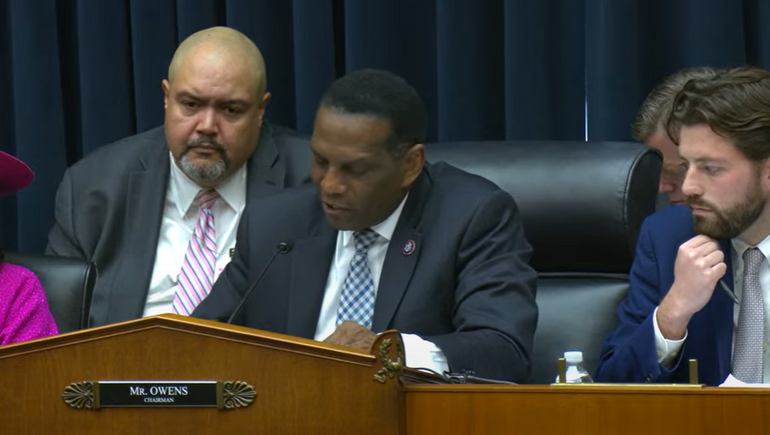[ad_1]
Dive Brief:
- Republicans on the House Subcommittee on Higher Education & Workforce Development on Thursday assailed the Biden administration’s plans to rework the federal student loan system, reiterating conservative talking points that the initiatives are nothing more than government handouts that would not reduce college costs.
- Topics like the president’s proposals to forgive broad amounts of student loan debt and regulatory revisions to an income-driven repayment model dominated debate during a subcommittee hearing Thursday. Democrats on the panel argued such programs would alleviate financial burdens on the most disadvantaged borrowers.
- Glimmers of partisanship emerged, however, when discussion turned to holding colleges directly accountable for unmanageable amounts of debt and ballooning student costs.
Dive Insight:
President Joe Biden’s Education Department has prioritized reshaping the beleaguered student loan system, which has contributed to the national debt growing to about $1.7 trillion.
The program that has garnered the most attention is cancellation of mass amounts of student debt — up to $20,000 for borrowers earning $125,000 or under a year. The plan is on hold because federal court rulings have temporarily blocked it. It’s now under consideration by the U.S. Supreme Court, and pundits expect the conservatives that comprise the majority will declare the plan illegal.
Though the program may be struck down, that did not stop House Republicans from tearing into it during Thursday’s hearing.
Several Republicans insinuated the debt cancellation measure, announced in August, was a political ploy to prop up Democrats’ chances prior to last year’s elections. Other conservatives took aim at what they deemed administrative bloat at colleges, with rising tuition paying for officials’ salaries rather than opportunities for students.
Republicans have proposed legislation that would cap loan amounts for graduate students and eliminate the Public Service Loan Forgiveness program, or PSLF, which forgives debts of government and service workers after a set number of payments. Democrats, meanwhile, have pushed an alternative proposal to invest more in the Pell Grant program, a primary vehicle of federal student aid, as well as updates to PSLF.
Carlo Salerno, an education economist, told the panel that many new higher ed costs stem from wraparound services colleges have instituted — more counselors, for instance. Some of these services, particularly at community colleges, target students who may otherwise stop out.
Salerno said colleges need “a carrot and a stick” to push them to lower costs. He also argued that some of the Biden administration’s actions, like the continued student repayment freeze and the delayed simplification of the Free Application for Federal Student Aid, or FAFSA, aren’t fair to borrowers or financial aid administrators.
Another speaker forecasted that should the loan forgiveness measure proceed, the subsequent economic ripples would spur more inflation. Colleges would also be incentivized to jack up tuition costs further, said Marc Goldwein, senior vice president and senior policy director for the Committee for a Responsible Federal Budget, a nonpartisan think tank.
No evidence has surfaced that colleges would hike tuition in response to loan forgiveness.
While Democrats and Republicans didn’t directly agree on a program to hold colleges more financially accountable for burdensome loans and costs, lawmakers on both sides of the aisle said they wanted to boost oversight in this area.
The administration has taken an interest in this, too. The Education Department has plans to craft a list of low-performing colleges that would be made public, partially as a shame tactic.
“Who benefits from this debacle of debt that has come in the last decades?,” said Rep. Burgess Owens, a Utah Republican and the subcommittee’s chair. “The only one I really see benefits for are these colleges that have no risk, no skin in the game, they’re paid regardless of whatever happens.”
[ad_2]
Source link
Meet Our Successful Graduates: Learn how our courses have propelled graduates into rewarding
careers. Explore their success stories here!
Discover More About Your Future: Interested in advancing your teaching career? Explore our
IPGCE, MA, and QTS courses today!

Explore Our Courses: Ready to take the next
step in your education journey? View our
comprehensive course offerings now!

